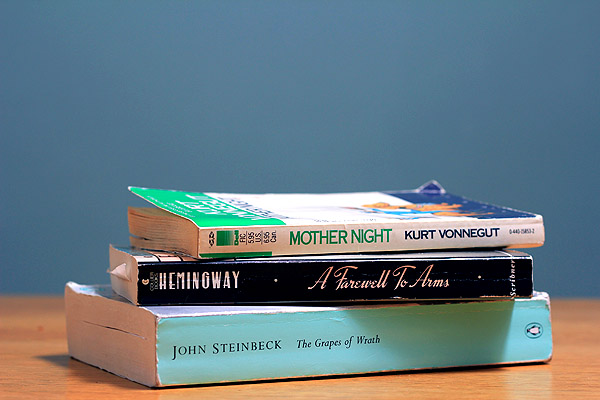 There’s a widespread perception that we’ve gotten more touchy-feely over the past couple of generations—increasingly willing to express our emotions.
There’s a widespread perception that we’ve gotten more touchy-feely over the past couple of generations—increasingly willing to express our emotions.
If so, it’s not reflected in our writing.
A new study finds that, in a large dataset of English-language books, the use of terms expressing six basic emotions steadily decreased over the course of the 20th century. “We believe the changes (in word usage) do reflect changes in culture,” writes the research team, led by anthropologist Alberto Acerbi of the University of Bristol.
Writing in the online journal PLOS One, they note that their findings mirror social conditions, with terms reflecting happy moods peaking in the 1920s and 1960s, and those suggesting sad moods reaching their apex in the war years of the 1940s.
Using WorldNet-Affect, which finds sets of words representing specific moods or emotions, the researchers searched Google’s Ngram database, which features scanned content of roughly 4 percent of all books published. They focused on terms representing six basic moods: anger, disgust, fear, joy, sadness, and surprise.
They found that, overall, the use of words carrying emotional content decreased significantly over the course of the 20th century. They note this trend is not a reflection of more technical or scientific volumes coming out in later years; an analysis of a specific subset of books—works of fiction and literary criticism—found “a similar decrease in the overall use of mood words.”
Terms reflecting disgust had the steepest decline; of the six emotions studied, it was referenced the fewest times by the end of the century. Another negative emotion—fear—made a comeback starting in the 1970s, and continued to rise through the end of the century. (Given the anxiety-producing events of the early 21st century, there’s no reason to think it has reversed in recent years.)
Both of those trends are fascinating, for different reasons. Recent research has found a strong link between disgust sensitivity and social conservatism. Does the decline in references to disgust signal an increasingly liberal society, at least on issues such as gay marriage?
It’s also worth noting that the rise in fear-related terms coincides with what has been called “the great risk shift,” in which middle-class incomes have stagnated even as employment has become less secure. That insecurity seems to be reflected in our writing.
If the study rebuts one cliché, it confirms another. Americans really are more emotionally expressive than Brits—at least if our authors are representative of our respective cultures.
While writers from the two nations used such terms at roughly the same rate through the first half of the century, their writing styles began to diverge in the 1960s. By the end of the century, Americans used these terms far more than their fellow scribes across the pond.
This trend is paired with “a more general stylistic divergence” between writers on either side of the Atlantic, the researchers add. Compared with their more concise counterparts from the U.K., American writers increasingly use more “content-free words” such as prepositions, conjunctions, and articles.
This is the latest in a series of studies using newly available datasets to chart long-term trends in language. The researchers note that their results coincide with studies finding an apparent increase in narcissism over the decades, reflected in both word usage in books and the lyrics of popular songs.
What all this says about us is open to debate. But this study certainly provides an interesting new talking point. For all the talk of a therapeutic culture, it appears we aren’t wearing our hearts on our (book) sleeves.

